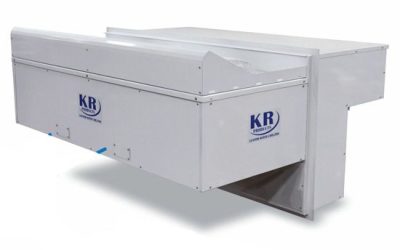In today’s rapidly evolving manufacturing landscape, American industries face mounting pressure to deliver innovative products, adapt to shifting regulations, and optimize operational costs. From aerospace to automotive, and from medical devices to consumer goods, companies are searching for solutions that offer both flexibility and precision. One process that has gained significant traction for its ability to address these demands is Custom Plastic Extrusion. By enabling manufacturers to create tailored components with consistent quality and efficiency, this advanced technique is transforming how businesses overcome complex challenges.
Meeting Unique Design Requirements
Manufacturers often encounter situations where off-the-shelf plastic profiles or components simply won’t suffice. Whether it’s a need for intricate cross-sectional shapes, specific material properties, or tight dimensional tolerances, custom solutions become essential. Custom plastic extrusion provides a way to engineer parts that precisely meet these unique requirements. The process allows for:
- Complex Geometries: Extrusion dies can be tailored to produce intricate profiles, including channels, tubes, and multi-chambered parts, that would be difficult or impossible to achieve with traditional molding methods.
- Material Versatility: A wide range of thermoplastics can be used, from flexible PVC to high-strength engineering polymers, ensuring that the final product meets performance criteria for strength, flexibility, chemical resistance, or temperature tolerance.
- Color and Finish Options: Custom extrusion enables the integration of colorants and surface finishes directly into the manufacturing process, eliminating the need for secondary finishing steps.
Enhancing Efficiency and Reducing Costs
Streamlining production is a key concern for manufacturers seeking to maintain a competitive edge. Custom plastic extrusion supports this goal by offering several cost-saving advantages:
- Continuous Production: The extrusion process allows for long, uninterrupted runs, minimizing waste and reducing the need for frequent machine setups.
- Reduced Assembly Needs: By combining multiple functions into a single custom profile, manufacturers can decrease the number of separate components required for assembly, simplifying logistics and inventory management.
- Scalability: Whether producing small batches for prototyping or large volumes for mass production, extrusion can be easily scaled to match demand, helping businesses avoid overproduction or shortages.
Addressing Regulatory and Industry Standards
Compliance with industry standards and regulations is non-negotiable, especially in sectors like healthcare, food processing, and transportation. Custom plastic extrusion offers the flexibility to select materials that meet stringent requirements, such as FDA approval, UL certification, or flame retardancy. Additionally, the process ensures consistent quality, which is critical for maintaining traceability and meeting inspection protocols.
Supporting Innovation and Sustainability
As American industries push toward greener practices and seek innovative solutions, custom plastic extrusion plays a pivotal role. The ability to incorporate recycled or bio-based materials, design lightweight yet durable parts, and minimize scrap all contribute to more sustainable manufacturing processes. Furthermore, rapid prototyping capabilities mean that new ideas can move from concept to production quickly, fostering a culture of innovation.
By enabling precise customization, boosting efficiency, and supporting compliance and sustainability, custom plastic extrusion has become a cornerstone technology for American manufacturers. Its adaptability and reliability continue to open new possibilities, empowering industries to tackle their most complex challenges and remain at the forefront of global innovation.







